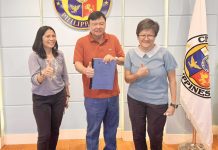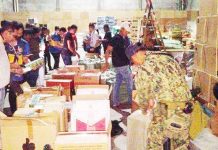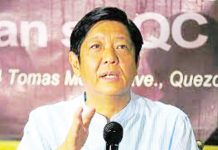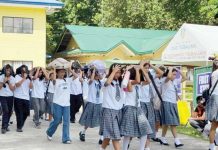
MARIANO Gomez, José Burgos and Jacinto Zamora were Filipino priests executed by garrote on Feb. 17, 1872 by Spanish colonial authorities on concocted charges of subversion. They were collectively known as
“Gomburza”.
They incurred the hatred of Spanish authorities for fighting for equal rights among priests and leading the campaign against abusive Spanish friars. They fought on the issues of secularization in the Philippines that led to the conflict of religious and church seculars.
The Gomburza martyrdom is recognized as a pivotal event contributing to the Philippine Revolution. It is thus lamentable that millennials are clueless about this, as reflected in the recent Pinoy Big Brother brouhaha about young housemates exposing their ignorance about their country’s history.
But on a larger perspective, it is not the young PBB contestants’ fault if they are unable to answer basic content questions related to Philippine History as it was abolished as a separate subject when the new K to 12 curriculum was adopted in 2013.”
There is actually a measure proposing to remedy this – House Bill 8621 mandating the inclusion of Philippine History as a subject in the high school curriculum.
By the way, Panitikan (Philippine Literature) as subject in the tertiary level is also a casualty of the K to 12 program.
K to 12’s curriculum has notoriously removed subjects essential to shaping our youth’s cultural and historical consciousness. The Department of Education claims that Philippine History is still part of the current curriculum but professional organizations’ analyses point out to the fact that discussions of events in Philippine history are only integrated in several subjects. What we need is an independent subject focused not only on teaching mere narration of facts and figures but also on ensuring that the students understand the implications of major historical events in our daily lives today.
More than the seemingly trivial matter of young quiz bee participants failing to guess the correct answer on a basic question, we want our citizens to have a critical mindset capable of identifying fake news and disinformation related to claims and counter-claims on our country’s contemporary history which affects us all, especially in an election cycle where the leading presidential candidate is a son of a dictator who ruled for more than 20 years of plunder, human rights violations, and killings.
Legislating Philippine History and Philippine Literature in the curriculum would certainly provide more spaces for robust discussions which would help us all build an equally vibrant public discourse on our past, present, and future. Our democracy could only be strong if our citizens are well-equipped in fighting the forces of historical amnesia and distortion.





